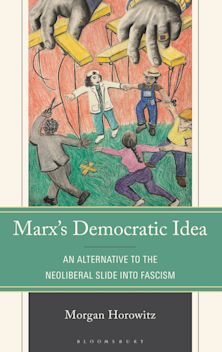Hannah Arendt’s Ambiguous Storytelling
Temporality, Judgment, and the Philosophy of History
Hannah Arendt’s Ambiguous Storytelling
Temporality, Judgment, and the Philosophy of History
This product is usually dispatched within 1 week
- Delivery and returns info
-
Free US delivery on orders $35 or over
Description
Through an original interpretation of Hannah Arendt's historiography, Marcin Moskalewicz reveals an under-acknowledged philosophy of history in her vast and variegated oeuvre, including the historical magnum opus, The Origins of Totalitarianism.
Hannah Arendt's Ambiguous Storytelling argues that the key to understanding the fragmentary thought of Arendt is through the speculative and critical dimensions of the philosophy of history. It unravels the essential aporia of Arendt's thinking – the discrepancy between political and historical meaning of events – and proposes its overcoming through aesthetic historical judgment. Reading her approach as “fragmented historiography”, the project she was committed to reveals itself as the only credible methodological response to totalitarianism and scientific approach to history, which both function as a retrospective prophecy, erroneously presenting the past as a forecast of the future.
A novel contribution to Arendt scholarship, this book will appeal to philosophers of history, political scientists and theorists alike.
Table of Contents
1. The Origins of Totalitarianism
2. Bare Life and the End of History
3. Thinking History through Time
4. The Science of History as Ideology
5. Performative Self
6. Temporal Conflicts of the Mind
7. The Contingency and Decline of History
8. The Beauty of the Past
9. Redemption of Contingency
10. Pieces of the Past
Conclusion
Acknowledgements
Notes
Bibliography
Index
Product details

| Published | May 02 2024 |
|---|---|
| Format | Hardback |
| Edition | 1st |
| Extent | 272 |
| ISBN | 9781350295872 |
| Imprint | Bloomsbury Academic |
| Dimensions | 9 x 6 inches |
| Publisher | Bloomsbury Publishing |
Reviews

ONLINE RESOURCES
Bloomsbury Collections
This book is available on Bloomsbury Collections where your library has access.




































